Latest DePIN News
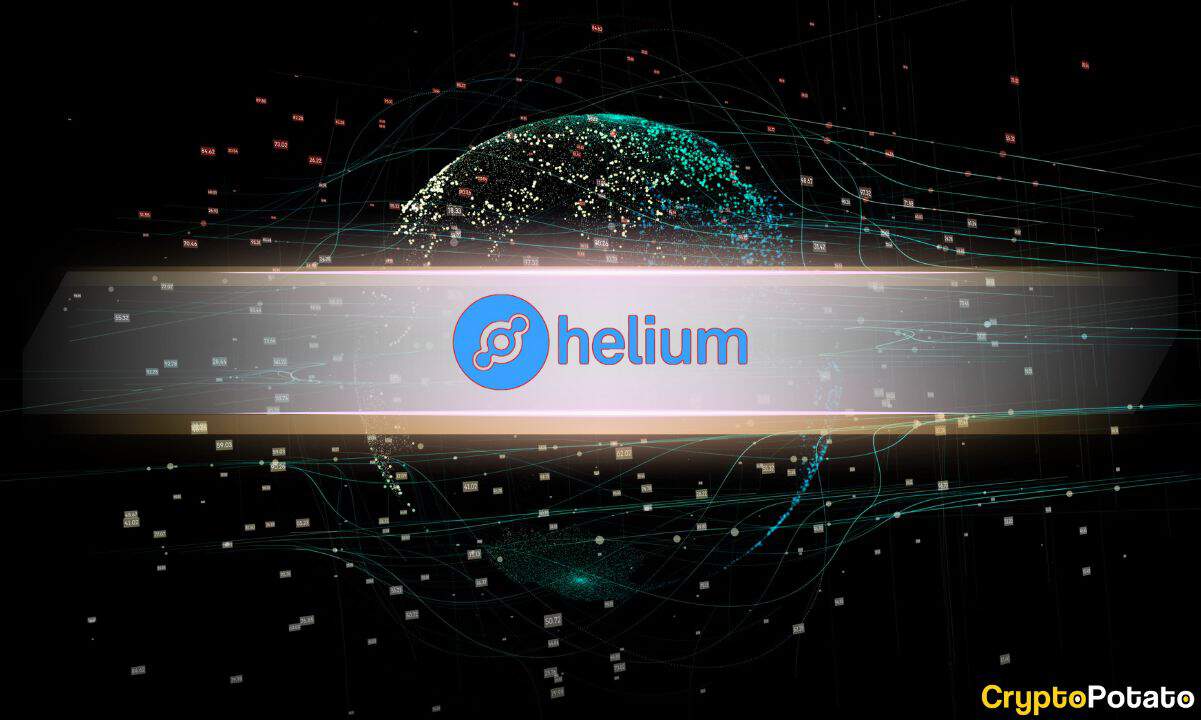
7 months ago
Helium Network Expands Despite Token Decline and Past Controversies
In the fourth quarter, Helium's native token, HNT, experienced a significant decline, with its circulating market capitalization dropping from $1.3 billion to $1.0 billion, marking a 20% quarter-over-quarter decrease. The token's price also fell by 22%, decreasing from $7.54 to $5.88. Despite this downturn in the market, the Helium network continued to expand, particularly in the area of hotspot adoption. According to a report from Messari, Helium Mobile's number of hotspots grew by 14% QoQ, reaching 24,800 from 21,800. The service's unlimited plans remain competitively priced compared to traditional telecom providers in the US, and the introduction of the Discovery Mapping feature has incentivized users to share location data, although rewards have recently shifted from HNT to Cloud Points.
During the recent Hurricane Helene in North Carolina, Helium Mobile showcased its utility by maintaining operational hotspots that provided 5G coverage while many were left without electricity or water. The team also took proactive measures by distributing emergency kits, including Starlink devices, to assist affected communities. In addition to Helium Mobile, the IoT network also saw a 20% increase in hotspots during Q4, with a total of over 375,000 hotspots onboarded since migrating to Solana in early 2023. However, despite rapid infrastructure growth, demand has not yet caught up, as evidenced by low daily data credits (DC) usage.
Helium has faced controversies in the past, including allegations that its founders hoarded a significant portion of early token rewards, with insiders reportedly mining millions of HNT tokens worth $250 million at their peak. Additionally, Helium faced criticism for overstating partnerships, such as with Lime, the rideshare company, which clarified that their relationship was limited to a 2019 test. Similar issues arose with Salesforce, which denied any partnership, leading Helium to remove their logos from promotional materials. These controversies have raised questions about the company's transparency and the sustainability of its growth strategies.
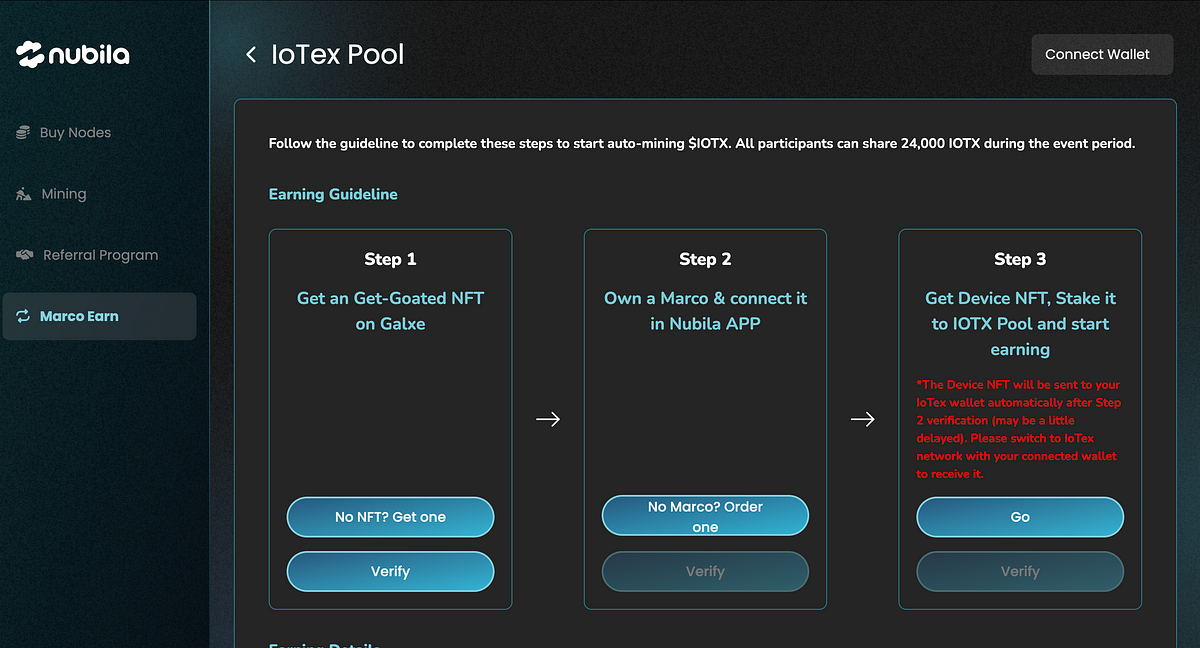
7 months ago
Nubila Launches Dual Mining Campaign for $IOTX with Marco Weather Stations
Nubila is at the forefront of a decentralized initiative aimed at collecting and rewarding real-time environmental data through its innovative Marco Weather Station, aligning with the broader DePIN movement. Participants in Nubila's Get Goated Season 2 campaign who own a Marco device can now engage in a Dual Mining Campaign. This program enables users to mine $IOTX, the native token of the IoTeX ecosystem, while also accumulating Nubila Mining Points, thereby incentivizing the collection of valuable environmental data.
To participate in the Dual Mining Campaign, users must meet specific eligibility requirements. Firstly, they need to own a Marco Weather Station and have it linked to the Nubila app, as the data collected from this device is essential for the mining process. Additionally, claiming the Nubila Get Goated Season 2 NFT, distributed via Galxe, is mandatory as it serves as an access pass for the dual mining activities. Once these prerequisites are fulfilled, participants can proceed to connect their wallets and verify their email addresses to confirm their ownership of the Marco device.
After verification, users can stake their Marco NFT in the IoTeX reward pool to activate dual mining. The process is designed to be user-friendly, with no gas fees required for transactions on the IoTeX interface. Nubila aims to create a decentralized environmental data network, utilizing AI to deliver accurate insights for industries sensitive to weather changes. This initiative not only promotes climate change awareness but also encourages sustainability through incentivized IoT devices, paving the way for a more informed and responsive approach to environmental challenges.
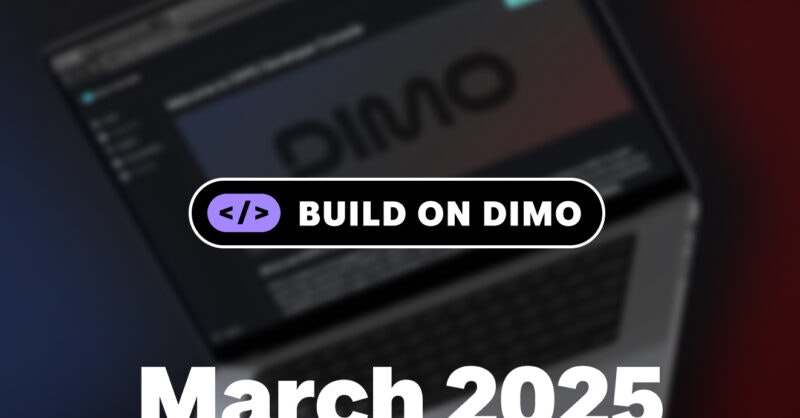
7 months ago
DIMO Developer Ecosystem Blooms with New Features and Updates
Spring has arrived, bringing a wave of innovation to the DIMO Developer ecosystem. With over 250 developer licenses minted, the platform is witnessing a surge in app launches and builder updates. Recent enhancements to the Data SDKs, including new functions for retrieving vehicle data and streamlined token exchanges, aim to simplify the development process. The naming conventions have also been updated for clarity, making it easier for developers to access privileged vehicle data without excessive boilerplate code.
In an exciting development, DIMO has officially begun support for Tesla Streaming as of March 1st. This feature allows developers to access real-time data from Tesla vehicles down to the second, a significant improvement from the previous five-minute interval data. However, it's important for developers to note that this feature is only available to Tesla drivers who have reconnected their vehicles with the DIMO mobile app and added a Virtual Key. This update opens new avenues for applications that require immediate and detailed data from Tesla vehicles.
Additionally, the DIMO Developer Console is set to undergo significant changes, including the consolidation of multiple apps under individual developer licenses. This update will streamline the user experience, allowing developers to manage their applications more efficiently. Furthermore, a redesign of the Developer Console is on the horizon, featuring an improved onboarding experience, a cleaner purchase process, and new integration options. These enhancements are designed to foster a more supportive environment for builders, ensuring they have the tools they need to succeed in their projects. Developers are encouraged to engage with the community and explore funding opportunities through the DIMO Ignite Grants Program as they embark on their building journeys.
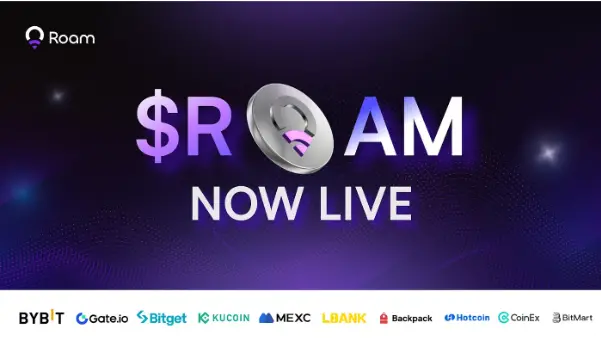
8 months ago
Roam: Pioneering the DePIN Track in Web3 Integration
In 2025, the DePIN track is emerging as a vital link between Web3 and real-world applications. According to the "DePIN Annual Report" by Messari, over 13 million DePIN devices are currently operational globally, contributing to infrastructure networks. Despite being in its infancy and representing less than 0.1% of the trillion-dollar terminal market, DePIN has attracted more than $350 million in early funding. As the on-chain battle intensifies in 2024, Solana is leading the charge in network infrastructure, while ROAM has gained significant traction with nearly 3 million WiFi nodes and 2.5 million users, showcasing its rapid growth and community engagement.
Roam's impressive expansion is attributed to its integration of OpenRoaming technology and blockchain DID/VC technology, alongside a business model that combines free eSIM services with token incentives. This approach not only broadens its wireless network reach but also facilitates user entry into the Web3 ecosystem, offering continuous income opportunities. The recent launch of the ROAM token on 12 exchanges, including Bybit and Bitget, saw a remarkable trading volume of $120 million on its first day, establishing it as a leader in decentralized wireless networks. Roam's unique dual deflationary economic model further enhances its revenue potential, shifting focus from supply-side growth to demand-side exploration.
Looking ahead, Roam is poised to solidify its position in the DePIN track through innovative applications and robust token economics. The upcoming use cases for ROAM tokens in gaming centers and credit card transactions will enhance user engagement and token consumption. With a total supply of 1 billion tokens and a strategic dual deflationary mechanism, Roam aims to create scarcity and drive long-term value. As it continues to expand its global open wireless network, Roam exemplifies the potential of decentralized technologies in shaping the future of connectivity and AI development, warranting close attention from the blockchain community.

8 months ago
New Jersey Devils Launch AI Chatbot 'Bott Stevens' for Enhanced Fan Engagement
The New Jersey Devils have introduced a groundbreaking AI chatbot named "Bott Stevens," aimed at enhancing digital fan engagement. This innovative chatbot is named after the legendary Devils player Scott Stevens and is powered by Theta EdgeCloud's decentralized AI infrastructure. Scheduled to launch during the 2024-25 NHL season, Bott Stevens will be accessible on the team's official website, providing fans with real-time information on game schedules, ticket sales, statistics, and merchandise. Utilizing Theta's Retrieval Augmented Generation technology, the chatbot will ensure data accuracy by sourcing information from official NHL channels, thereby minimizing the risk of misinformation from unverified sources.
Bott Stevens boasts impressive computational capabilities, leveraging Theta EdgeCloud's network of over 30,000 edge nodes and distributed GPUs, which collectively offer more than 80 PetaFLOPS of processing power. This robust infrastructure is designed to handle peak demand, particularly during high-stakes events like playoffs or significant team announcements. In addition to answering fan inquiries, the chatbot will provide historical highlights, game recaps, venue information, and updates on team events. Future enhancements may include predictive analytics for fantasy sports and interactive tools to further engage fans.
To promote Bott Stevens, the Devils plan to integrate its capabilities across multiple platforms, encouraging fan interaction and awareness. The chatbot will not only deliver statistics and schedules but also curated content that enriches the fan experience, such as historical highlights and information about upcoming events. Success metrics will include user engagement rates, accuracy of information, and feedback from fans, ensuring that Bott Stevens remains a valuable resource for the Devils' community. By focusing on continuous learning and personalized interactions, the team aims to differentiate Bott Stevens from other AI agents, creating a unique and engaging experience for fans.
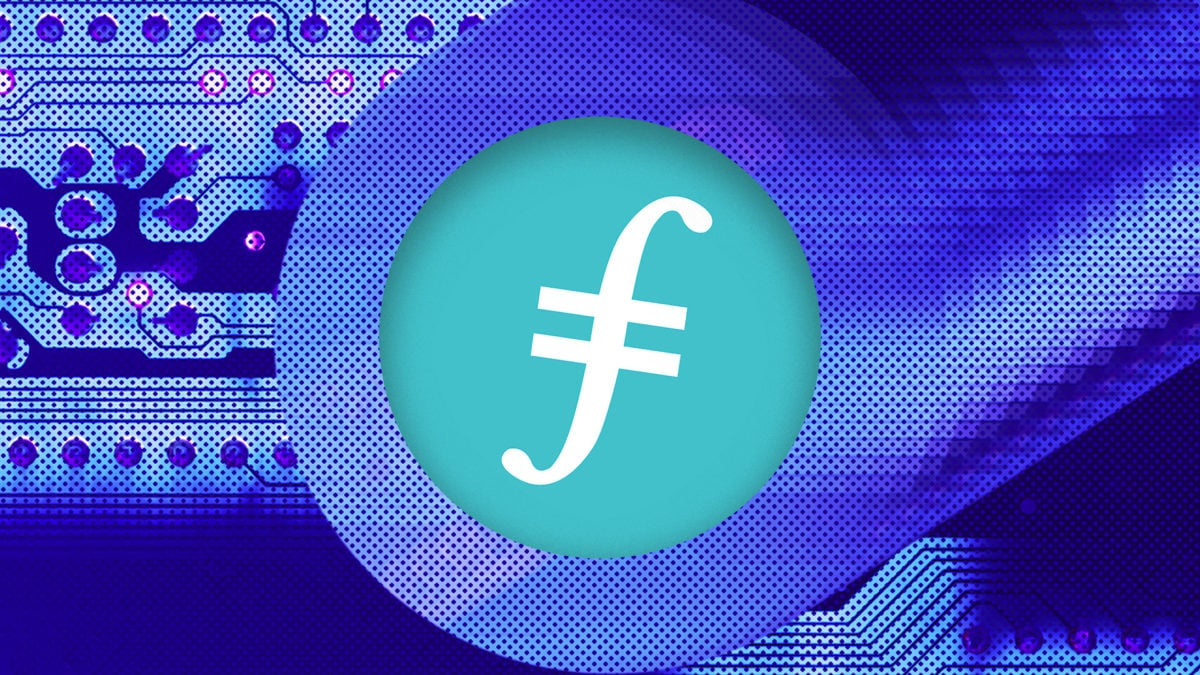
8 months ago
GLIF Launches Governance Token GLF with Airdrop and Plans for Expansion
GLIF, the largest DeFi protocol on Filecoin, has officially launched its governance token, GLF, and is distributing 94 million tokens through an airdrop. This distribution represents 9.4% of the total GLF supply, rewarding users who have engaged with the protocol by accumulating GLIF points. Initially, GLIF had planned to allocate 100 million tokens for the airdrop, but adjusted the number based on user participation. The remaining tokens will be returned to the community rewards pool for future distribution. GLF is currently focused on governance, but the team is developing a loyalty program inspired by airline miles, which will eventually offer additional benefits to token holders.
As GLIF expands beyond Filecoin, it aims to support additional decentralized physical infrastructure networks (DePINs). The protocol allows FIL holders to earn rewards through liquid leasing, enabling them to lend tokens to Filecoin storage providers. These providers use FIL as collateral to offer storage services, and lenders receive rewards in return. Depositors in GLIF receive iFIL, a liquid leasing token that can be traded or utilized in other DeFi protocols while still generating yield. With over $102 million total value locked, GLIF has established itself as a dominant player in Filecoin's DeFi space and is now exploring similar systems for other DePINs.
GLIF's expansion strategy involves discussions with various protocol foundations, focusing on user demand, technical feasibility, and economic risks. Many of Filecoin's storage providers are also significant miners across DePIN networks, leading to a trend of optimizing hardware for multi-chain contributions. By integrating with networks already supported by these miners, GLIF anticipates rapid scaling. Additionally, the team is exploring DePIN networks outside of storage, including those in the energy sector, and is open to adjusting their model or introducing new protocols to accommodate these networks. This strategic expansion reflects GLIF's commitment to innovation and adaptability in the evolving DeFi landscape.
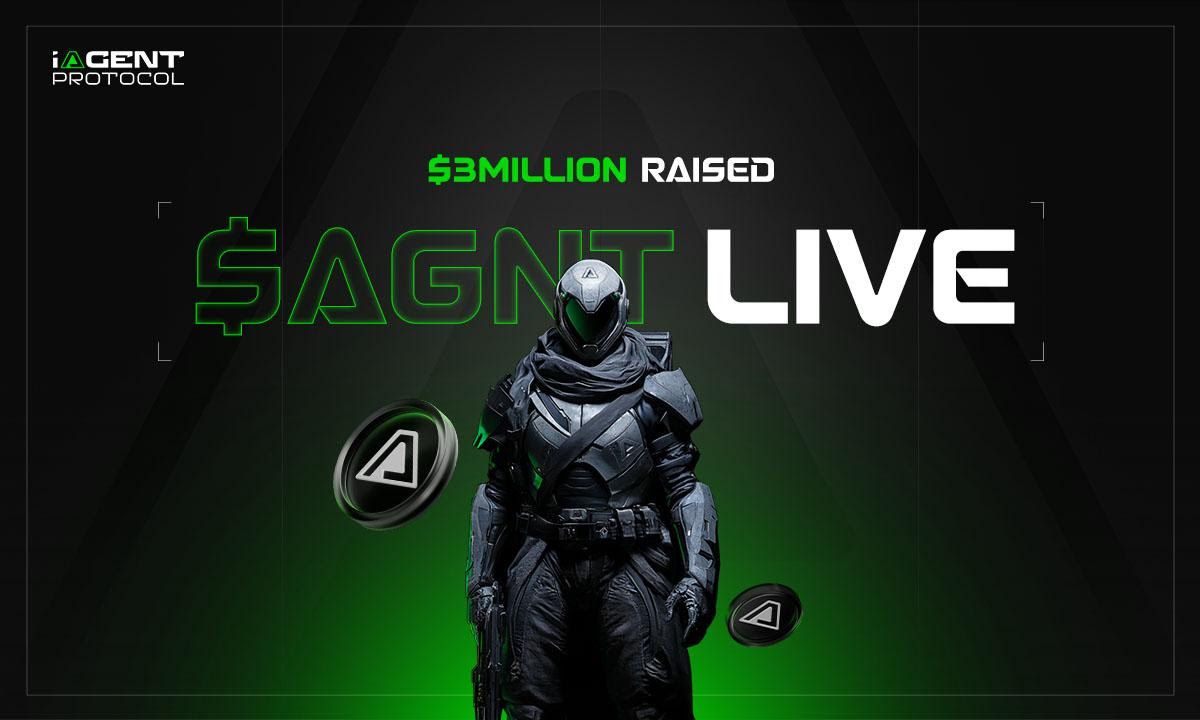
8 months ago
iAgent Raises $3 Million and Launches $AGNT Token to Revolutionize AI in Gaming
Decentralized AI network iAgent has successfully raised $3 million in funding and launched its native token, $AGNT. The project aims to create a new ERC standard and has formed strategic partnerships with notable projects such as Base, LayerZero, Avalanche, Aethir, Arbitrum, and XAI Games. With the Token Generation Event (TGE) now live, iAgent is establishing a foundation for AI Agents to become verifiable digital assets that can be trained, validated, and exchanged transparently. The initiative focuses on enhancing the scalability and accessibility of AI models across various ecosystems, with products like the Visual Learning Model (VLM) designed to learn from real-world gameplay rather than traditional text-based methods.
The VLM-powered AI is currently operational in games like Counter Strike 2, Off the Grid, and Citizen Conflict, where players have contributed over 25 TB of gameplay data. iAgent is also developing a new ERC asset standard to bring AI Agents on-chain, ensuring secure and interoperable digital assets that facilitate true ownership and trading. The AI Agent Marketplace is central to the iAgent ecosystem, allowing developers to list AI models for rental or sale, while businesses can purchase or integrate tailored AI solutions. Additionally, the iAgent DEV Hub provides developers with essential tools and a trustless AI validation framework to optimize AI models.
As gaming serves as a primary use case for training VLM-based models, iAgent is introducing adaptive AI agents to enhance gaming experiences through AI-powered assistants, Smart NPCs, and predictive AI for in-game economies. The roadmap for iAgent includes the launch of the AI Agent Marketplace in April 2025, followed by the introduction of the ERC standard proposal and the AGNT-Hub. By Q4 2025, the protocol Testnet and main net will be launched, establishing a fully operational iAgent Protocol. The AGNT token will play a crucial role in powering AI training, trading, and governance participation, positioning iAgent at the forefront of the rapidly growing AI, gaming, and DePIN industries.

8 months ago
Bitcoin Price Faces Pressure Ahead of FOMC Meeting
At the beginning of the week, Bitcoin (BTC) faced significant selling pressure, dropping from $84,500 on March 17 to $81,300 at the time of writing. This decline is likely linked to the upcoming Federal Open Market Committee (FOMC) meeting scheduled for March 18-19. Historically, FOMC meetings act as market resets, prompting traders to de-risk and reduce leverage ahead of the announcements. The outcome of the FOMC meeting, particularly the press conference by Federal Reserve Chair Jerome Powell, often leads to sharp reactions in the crypto markets, making it crucial for traders to analyze market behavior leading up to the event.
Traders are particularly focused on the FOMC minutes for any indications regarding shifts in the Fed's stance on inflation and interest rates. Bitcoin's price has shown a tendency to react sharply following FOMC announcements, with notable declines observed after the Fed maintained rates in early 2024. Interestingly, a pattern has emerged this month where Bitcoin's open interest has not decreased significantly before the FOMC meeting, despite a previous shakeout of $12 billion. This could suggest that traders are feeling less anxious about the Fed's decision, with a 99% probability indicated by CME Group's FedWatch tool that rates will remain unchanged.
In contrast to Bitcoin whales, investors in spot Bitcoin ETFs have historically reduced their BTC holdings before FOMC meetings. However, on March 17, spot Bitcoin ETFs experienced $275 million in net inflows, signaling a potential shift in investor sentiment. This increase in inflows may indicate that investors are anticipating a more dovish stance from the Fed or are using Bitcoin as a hedge against uncertainty. The upcoming FOMC announcement is expected to result in significant price movements for BTC, with traders anticipating that the Fed's statements could either lift the markets or drive prices lower, emphasizing the need for careful observation of post-FOMC price action and on-chain data.

8 months ago
Revolutionizing Confidential AI with Intel TDX and iExec
The landscape of Confidential AI is undergoing a significant transformation, primarily driven by the introduction of Intel® Trust Domain Extensions (Intel® TDX). For years, developers faced challenges when trying to secure AI workloads using Intel SGX, which often required extensive modifications to applications and led to compatibility issues. This cumbersome process not only wasted time but also hindered the real-world adoption of Confidential AI solutions. However, with Intel TDX, developers can now run AI workloads in secure virtual machines without needing to rewrite their code, thereby streamlining the development process and enhancing performance.
Intel TDX is designed to create a hardware-isolated trusted execution environment (TEE) that enhances data confidentiality and integrity in virtualized environments. Built into Intel’s 4th Generation Xeon® Scalable processors, TDX introduces Trust Domains that isolate virtual machines from the hypervisor and even cloud service providers. This isolation is crucial for AI applications that handle sensitive datasets and proprietary models, as it significantly reduces the attack surface while maintaining high performance. Additionally, TDX is optimized for AI workloads, leveraging advanced CPU capabilities to accelerate deep learning and machine learning models, making it a robust choice for developers.
The collaboration between Intel TDX and iExec is paving the way for a new era of Confidential AI. As a Gold Member of the Intel Partner Alliance, iExec is at the forefront of this movement, providing solutions that enable secure, decentralized, and scalable execution of AI workloads. This partnership not only enhances the security of AI computations but also ensures compliance with data protection regulations. With practical applications in sectors like healthcare and finance, iExec empowers developers to build privacy-preserving AI applications that prioritize data ownership and secure computing, ultimately leading to a more trustworthy AI ecosystem.

8 months ago
AI Cryptocurrencies Bittensor and IntelMarkets Show Promising Growth Potential
AI-driven cryptocurrencies like Bittensor and IntelMarkets are experiencing a significant surge, with last month's impressive 40% increase drawing attention from analysts. The growing adoption of artificial intelligence and decentralized intelligence has positioned both TAO and INTL tokens for potential substantial growth. Investors are left to ponder whether this is merely the onset of a larger movement in the crypto space, particularly as Bittensor's recent developments suggest a promising future.
Bittensor's TAO token has recently gained traction in the DeFi AI sector, although it remains within a descending price channel. A minor bullish engulfing pattern has emerged, hinting at a possible breakout. Factors contributing to this optimism include President Trump's substantial investment plan for AI, which, despite focusing on centralized solutions, may elevate discussions around decentralized AI, where Bittensor is making strides. Additionally, a partnership between Zuvu AI and Vana aims to enhance decentralized AI within Bittensor, potentially paving the way for TAO to reach the ambitious $1,000 mark under favorable market conditions.
On the other hand, IntelMarkets is democratizing access to AI tools for everyday traders, previously available only to hedge funds. By providing advanced trading bots and real-time alerts, IntelMarkets empowers small traders to make informed decisions. The platform also emphasizes education, offering resources to simplify complex investment strategies. With its robust security system, Codeum, IntelMarkets ensures user assets remain protected. Currently in Stage 10 of its presale, the INTL token is priced attractively at $0.092, with predictions suggesting it could rival Bittensor's market cap, offering early investors a potential 20,000% return on investment.
Signup for latest DePIN news and updates